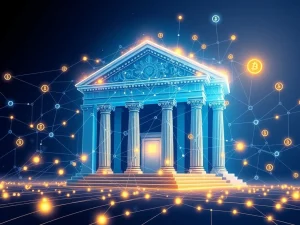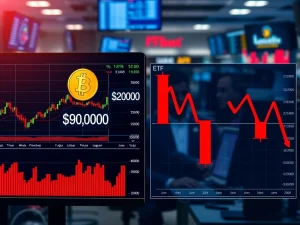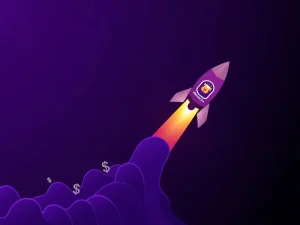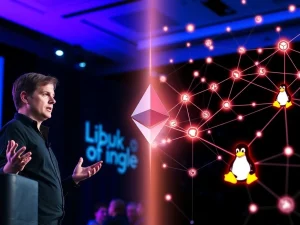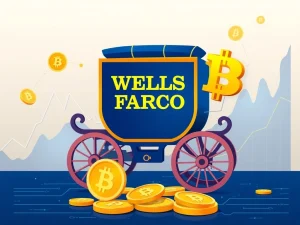XRP News: Ripple CTO’s Past Unveiled, Yet XRP Trading Remains Steadfast
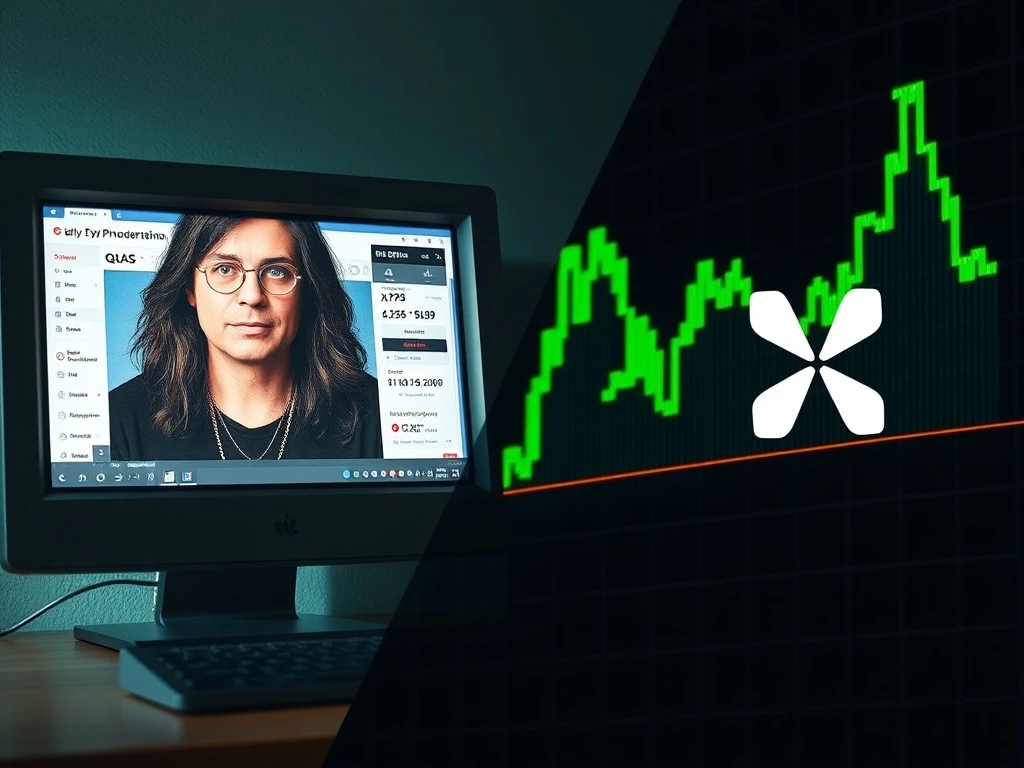
In a surprising turn of events for Sunday, July 27, 2025, the cryptocurrency world is buzzing about a historical admission from a key figure: Ripple CTO David Schwartz. He has publicly acknowledged fabricating questions and editing responses during a 2001 virtual Q&A session with Black Sabbath frontman Ozzy Osbourne. While this revelation might sound like a bombshell, especially for those following XRP News Today, the market reaction tells a different story. What does this two-decade-old confession mean for one of the crypto industry’s most scrutinized tokens?
Unpacking the Revelation: Ripple CTO’s Past Confession
David Schwartz, widely known as the Ripple CTO and a pivotal architect of the XRP Ledger, has candidly spoken about his role in a 2001 online Q&A event. Hosted by WebMaster, the session was designed to connect fans directly with Ozzy Osbourne. However, Schwartz revealed that he heavily curated the interaction, crafting ‘canned questions’ and filtering out profanity to manage audio quality issues and adhere to U.S. broadcast standards. He described this intervention as a ‘personal failure’ due to the ethical concerns it raised regarding transparency.
At the time, such edits were often justified as technical necessities to ensure smooth online engagement. Yet, Schwartz’s retrospective critique highlights a significant shift in societal expectations for authenticity in digital spaces. Audiences today increasingly demand unfiltered access and genuine interactions, a stark contrast to the early internet’s technical limitations and moderation norms. This historical context is crucial when considering the implications of his admission.
XRP Trading Stability Amidst Historical Disclosure
Despite the headline-grabbing nature of Schwartz’s admission, the XRP trading market has shown remarkable resilience. Analysts have confirmed that the XRP token has experienced no significant price fluctuations in response to this disclosure. Trading metrics remain stable, and there have been no reported regulatory or financial implications for Ripple as a result of this historical event. This indicates a mature market that differentiates between a historical ethical disclosure by an individual and the ongoing operational and legal standing of a major blockchain company.
Unlike Ripple’s well-documented legal battles with U.S. regulators, this controversy predates Schwartz’s blockchain career and is isolated from the company’s current technological or regulatory trajectory. The market’s non-reaction underscores that XRP’s performance is driven by broader industry trends, adoption, and regulatory clarity, rather than isolated ethical disclosures from decades past.
David Schwartz and the Evolution of Digital Ethics
The incident involving David Schwartz and the Ozzy Osbourne Q&A serves as a fascinating case study in the evolving standards of digital ethics. Schwartz’s actions, while framed as necessary to manage fan dynamics and technical constraints during the event, also reflect the broader challenges of maintaining neutrality and authenticity on digital platforms. This is especially true when cultural norms intersect with user-generated content, and the technology for real-time, unfiltered interaction was still nascent.
His acknowledgment, made years after the fact, highlights a growing demand for accountability in leadership roles, even concerning past actions. It also prompts discussions about the complexities of balancing operational efficiency with user expectations for transparency. While this specific event predates his work at Ripple, it offers a glimpse into the foundational challenges of online moderation that continue to resonate in today’s digital landscape, including the blockchain space.
What This Means for XRP News Today
For those closely following XRP News Today, it’s important to understand that this historical admission does not signal any new challenges for Ripple’s current operations. The company’s leadership has not issued a direct response to the revelation, reinforcing the idea that it is viewed as a personal, historical matter for Schwartz, distinct from Ripple’s ongoing business. Ripple continues to focus on innovation, expanding its global payment solutions, and navigating its regulatory landscape.
The incident also draws a clear line between the market’s reaction to genuine fundamental developments and isolated, historical anecdotes. While we’ve seen speculative surges in meme tokens, some even linked to unrelated news about Osbourne (like the OZZY token), XRP’s steadfast stability indicates that the market is treating this historical event as a non-event for its valuation. This reinforces XRP’s position as a more established asset driven by utility and adoption.
Navigating Crypto Transparency: A Broader Look
Schwartz’s candid admission has reignited broader discussions about crypto transparency within the digital asset sector. In an industry built on principles of decentralization and immutability, the importance of clear, honest communication cannot be overstated. While this specific incident is historical and personal, it contributes to the ongoing dialogue about accountability in leadership and the evolving standards for digital platforms, including those built on blockchain technology.
The cryptocurrency sector, particularly projects like Ripple, is under constant scrutiny regarding its operations, regulatory compliance, and market integrity. This historical disclosure, while not impacting XRP’s market, subtly underscores the ongoing societal demand for authenticity and transparency from all digital entities, whether they are early internet forums or cutting-edge blockchain companies. It’s a reminder that even past actions can inform current conversations about ethical governance in the digital realm.
In conclusion, while the revelation of Ripple CTO David Schwartz’s 2001 Ozzy Osbourne Q&A edits is certainly an interesting piece of digital history, its impact on the current state of XRP and Ripple is negligible. The market’s stable reaction confirms that investors and analysts are focused on fundamental drivers rather than isolated, pre-blockchain ethical disclosures. This incident serves as a unique historical footnote, highlighting the evolving landscape of digital transparency, but it does not deter Ripple’s forward momentum or XRP’s market stability. The crypto world, ever-evolving, continues to prioritize innovation and regulatory clarity above all else.
Frequently Asked Questions (FAQs)
Q1: What exactly did Ripple CTO David Schwartz admit to?
A1: David Schwartz admitted to fabricating questions and editing responses during a 2001 virtual Q&A session with Ozzy Osbourne. He stated he did this to manage audio quality and filter profanity, describing it as a ‘personal failure’ due to ethical concerns about transparency.
Q2: How has this admission affected XRP’s market performance?
A2: The XRP market has shown no significant price fluctuations in response to this disclosure. Analysts confirm stable trading metrics, indicating that the market views this as a historical, isolated event with no impact on XRP’s current value or Ripple’s operations.
Q3: Is this related to Ripple’s ongoing legal battles or current operations?
A3: No, this historical controversy predates Schwartz’s blockchain career and is entirely separate from Ripple’s current operations, technological trajectory, or its ongoing legal battles with U.S. regulators. Ripple’s leadership has not issued a direct response, reinforcing its non-relevance to current business.
Q4: Why is this historical event resurfacing now?
A4: The article does not specify why this particular historical event is resurfacing now, beyond Schwartz’s public admission. It may be part of a broader trend towards increased transparency and accountability for public figures regarding their past actions.
Q5: What does this incident tell us about digital ethics and transparency?
A5: The incident highlights the evolving standards for digital ethics and transparency. While such edits were once justified as technical necessities, Schwartz’s retrospective critique reflects shifting societal expectations where audiences increasingly demand unfiltered access and greater accountability from digital platforms and their leaders.
Q6: Does this impact David Schwartz’s role as Ripple CTO?
A6: There is no indication that this historical admission impacts David Schwartz’s current role or responsibilities as Ripple CTO. The company’s focus remains on innovation and compliance, and the market has treated this historical event as distinct from Ripple’s present operations.






